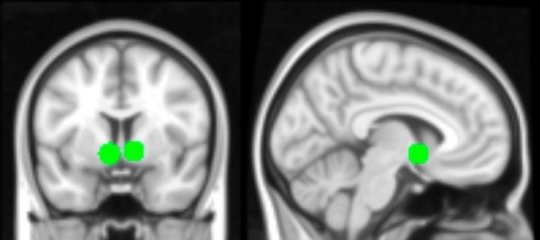Brain Scans Show What Makes Teenagers Happier Than Winning the Lottery

By:
A new UCLA study used brain scans to show what really activated teenagers' "reward" center in their brains, the same part that's activated when something good happens, like winning the lottery.
It turns out, it's those sweet, sweet "likes" on social media.
Teenagers feel rewarded when their social media posts are liked, and it doesn't even matter who does the liking, as long as they like it.
Researchers told a group of 32 teenagers ages 13 to 18 at UCLA's Ahmanson-Lovelace Brain Mapping Center that they were there to try out a new social media app similar to Instagram — a clever lie. Because what the researchers really wanted to know was how their nucleus accumbens (basically the primary part of the brain's reward system) would react to social media validation.
The teens viewed 148 photos, 40 of which were their own, while hooked up to equipment measuring their functional magnetic resonance imaging, or fMRI. Each of these photos were shown with a number of "likes." The more "likes" the teen's photo had, the more their reward centers showed activity.
 Lauren Sherman/UCLA via Science Daily - sciencedaily.com
Lauren Sherman/UCLA via Science Daily - sciencedaily.com
"When the teens saw their own photos with a large number of likes, we saw activity across a wide variety of regions in the brain," lead author Lauren Sherman of the UCLA branch of the Children's Digital Media Center said in the study.
And here's the kicker: the teens were led to believe that the other teens were the ones liking their photos, when really, it was the researchers — and the "likes" were randomly assigned.
That's not the only discovery researchers made.
Researchers discovered that what most influenced teens to click "like" was how many likes the photo had before they liked it. "We showed the exact same photo with a lot of likes to half of the teens and to the other half with just a few likes," Sherman notes. "When they saw a photo with more likes, they were significantly more likely to like it themselves."
The takeaway? "Teens react differently to information when they believe it has been endorsed by many or few of their peers, even if these peers are strangers," Sherman said.
It seems like you can't escape peer pressure, even anonymously, or on an app.
"In the study, this was a group of virtual strangers to them, and yet they were still responding to peer influence; their willingness to conform manifested itself both at the brain level and in what they chose to like," said Mirella Dapretto, Ph.D., professor of psychiatry and biobehavioral sciences at UCLA's Semel Institute of Neuroscience and Human Behavior.
If that's how teenagers respond to digital perceived peer pressure, how can we expect them to respond in real life? "We should expect the effect would be magnified in real life, when teens are looking at likes by people who are important to them," Dapretto notes in the study.
The study also illustrates how teenagers are more willing to take risks if they believe others are doing the same.
Some of the photos the teens saw showed risqué material and behavior, such as teenagers smoking cigarettes, drinking alcohol, and wearing "provocative clothing." As long as those photos had a large number of "likes," the teens would join in and "like" the photo as well.
Bottom line?
Teens feel rewarded by digital "likes," no matter who they're coming from, but they'll only reciprocate their likes if others are doing the same.
